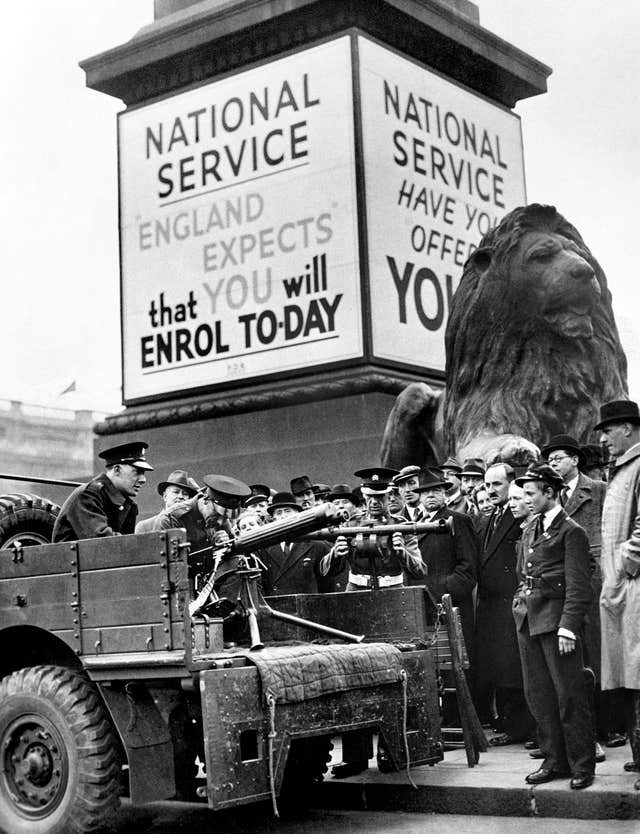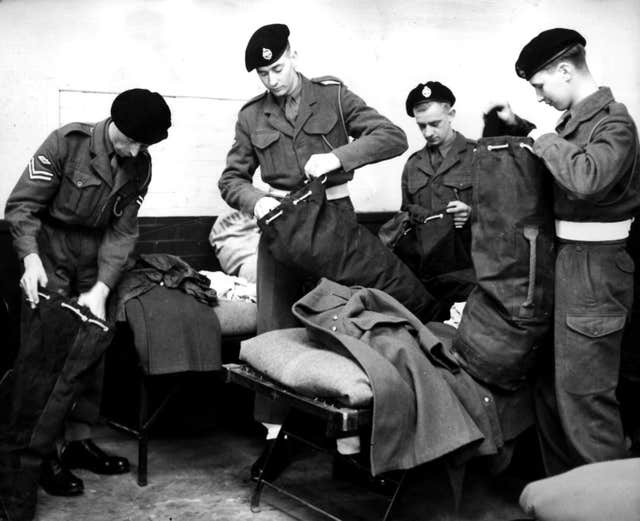What was national service and how does it work in other countries?
Compulsory national service was abolished in the UK in 1960 following the Second World War, but still exists in various forms in other countries.

Eighteen-year-olds would be forced to carry out a form of national service if the Tories win the General Election, Rishi Sunak has announced.
The most recent form of compulsory national service, which required all physically fit male British citizens aged between 18 and 26 to serve in the armed forces, was abolished in 1960.
However, national service in various forms still exists in countries around the world including in some European countries and South Korea.

Under the Conservatives’ new proposal, young people would be given a choice between a full-time placement in the armed forces for 12 months or spending one weekend a month for a year “volunteering” in their community, the Tories said.
The Prime Minister said the policy would help unite society in an “increasingly uncertain world” and give young people a “shared sense of purpose”.
In an apparent pitch to older voters, he said volunteering could include helping local fire, police and NHS services as well as charities tackling loneliness and supporting elderly, isolated people.
After the Second World War ended in 1945, the government felt it was necessary to maintain high levels of military presence across the world, including in parts of the British Empire and in Germany.
To address this, the National Service Act, requiring all physically fit male British citizens between 18 and 26 years old to serve in the armed forces for 18 months from January 1949, was passed by Clement Attlee’s Labour administration in 1947.
This compulsory service included varied roles at home and abroad such as fighting on the frontline or clerical work and did not extend to women.
Certain groups including students and apprentices were allowed to defer their service until they had completed their education or training.
National service was abolished in 1960 with the last servicemen discharged in 1963.

According to the Royal British Legion, between the end of the Second World War and May 1963, more than two million men took part in national service.
Many countries across the world currently have some form of national service, including military and non-military models.
All able-bodied men in South Korea must serve in the armed forces for a period of 18 to 21 months under a conscription system set up in response to the threat from North Korea.
Members of K-pop band BTS made headlines around the world over the last year as they began to fulfil their mandatory duties.
In Israel, military service is compulsory for the majority of both men and women over 18 years old, with men expected to serve for a minimum of 32 months and women a minimum of 24 months.
In Switzerland, 18 weeks of military service training is mandatory for all able-bodied men between the ages of 18 and 30, along with yearly refresher courses.
Longer, civilian service is also possible for those unwilling to serve in the military due to their conscience and mainly involves assignments focused on social welfare, healthcare and environmental protection.
In Sweden, all citizens must complete a military enlistment form the year they turn 18 and, if selected, are obliged to enrol in basic military training.
Speaking on Sky News’s Sunday Morning With Trevor Phillips programme, Home Secretary James Cleverly confirmed that teenagers would not be jailed for refusing to take part in the proposed scheme.
Mr Cleverly said the plans were aimed at getting young people “out of their bubble” and would not involve the threat of criminal sanctions for those who refuse to comply.
Labour criticised the scheme with shadow work and pensions secretary Liz Kendall branding the announcement a “headline-grabbing gimmick”.





